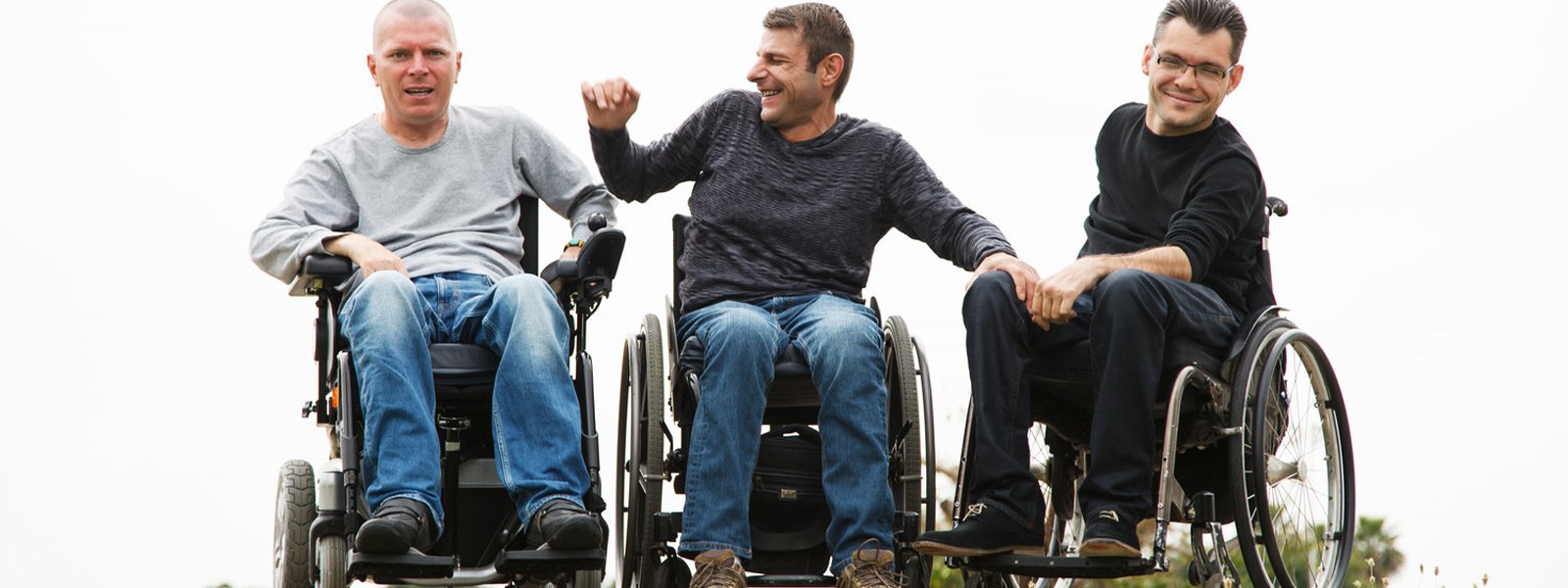counselling
Do you need help with...
aaa
Life issues or skills... Planning & transitions... Mental health concerns... Carer concerns/stress... Trauma/grief/crisis... just to name a few!
 A SchemeWise Counsellor may be able to help.
A SchemeWise Counsellor may be able to help.
Life is about change. And about growing. But sometimes its hard to do either if you don’t know what to look for, how to start, or even what questions to ask? This is where counselling can help.
Our counsellors (male and female available) have many years of professional experience helping people navigate and find the answers to these questions in their own life context, and within a trauma informed service alliance. Counselling is a person-centred service available to NDIS participant's, their carer(s) and family. It is a capacity-building, capacity-enhancing and skills-building therapeutic talking service. Much of what it seeks to do is support, enhance and/or develop the 'inner' you - helping you to find your life answers.
Counselling is the central way most people access a therapeutic service to do 'self-skill' work. Work focused on personal and functional skills building to respond to their circumstances, understnad and manage moods, assisting them to move to the next level of their lives, or move on from life events or grief. Counselling can also help with adjustment to life with disability, carer responsibility and with life solution-finding to leave problems behind. To engage with counselling people need to be motivated toward change in their lives.
aaa
SchemeWise Counsellors can help with:
⇒ Neurological conditions like autism, brain injury, MS, Parkinson's, Stroke, spinal cord injury, etc.
⇒ Resolving conflict – personal and interpersonal (at home, work or other setting).
⇒ Mental health – such as with depression, anxiety, OCD, panic, psychosis (hearing voices) or persisting problems as part of a primary disability condition.
⇒ Life Transitions - such as school, home, or work, planning for and adjusting to independent life, or changed circumstances.
⇒ Worries, problems, or issues affecting your peace of mind – like addictions, personal issues, safety, other stressors.
⇒ Trauma (all kinds) - past and present as well as distress or stress reactions from an injury / distressing situations.
⇒ Work skills – getting along aith others, time management, dealing with stress.
⇒ Social skills & learning about different perspectives and/or getting along with others.
⇒ Life-skills coaching (budgeting, paying bills, help with housing, etc) or building personal resilience.
⇒ Grief and grieving (past and present - including complex grief).
⇒ Coaching & self-improvement - to gain personal insight and take control of your life.
⇒ Goal-setting and reviewing current goals (especially important around scheme review times!)
⇒ Relationships - personal (not marital), family and friends as well as issues affecting carer capacity / stress
Our counsellors can also assist with planning and memory issues (especially common from stroke or brain injury and other head trauma), helping people develop a system that supports the areas they have problems with. This can be an effective way of increasing day-to-day functioning, improving capacity to live independently, and more importantly provide a sense that things are achievable again and not as confusing as they used to be. As little as 6 sessions can help in these circumstances. More complex matters may take longer as every situation is unique and progress is also individual.
aaa
We come to you
Yep - that's right... SchemeWise Counsellor's can travel to you.
 Our Counsellor's know that it can be hard when people have mobility or other issues which make it difficult to leave home or access therapy services. Some poeple also struggle in non-face-to-face situations like using technology. Or sometimes life is just too busy or caring responsibilities mean it can be hard to find the time. Ins ome cases, beinh in a safe place, like your home, is the best means to enable counselling support too.
Our Counsellor's know that it can be hard when people have mobility or other issues which make it difficult to leave home or access therapy services. Some poeple also struggle in non-face-to-face situations like using technology. Or sometimes life is just too busy or caring responsibilities mean it can be hard to find the time. Ins ome cases, beinh in a safe place, like your home, is the best means to enable counselling support too.
The NDIS includes provision for therapy travel. In line with NDIS rates, SchemeWise Counsellor's will include cost of travel up to a maximum travel time of 30 minutes; travel is free after that (in MMM1-3 areas). In rural areas (known as MMM4-5) the NDIS allows up to 60 minutes for travel time. Generally travel is charged in one direction only (except if you are the last customer in a counsellor's day). Travel is generally per 5 minute increment only up to the maximum and we use strategies to limit this cost too.
SchemeWise counsellor's can meet you at your home (if it is safe to do so), somewhere in the community (like a park - if the weather is OK) or can come to an alternative place like a hospital, day centre, school, workplace, etc. Whatever works for you!
COVID-19 update: Due to inceased communtiy issues we can no longer provide counselling in community places like a coffee shop or other places where social distancing is limited or not possible. Likewise, we request all parties wear a face mask, unless exempted. The disaiblity sector remains under public health orders and regulated requirements to keep poeple living with disaiblity safe from harms, like serious illness. We have a limited capacity for some services to be provided in private rooms if you can travel to us now - please talk too us about your needs (may not always be possible due to capacity constaints at this setting).
aaa
Or... use our teleservice
 Did you know you can also undertake counselling via teleservice (online video conference) or via phone, if this is a safe option in your circumstances.
Did you know you can also undertake counselling via teleservice (online video conference) or via phone, if this is a safe option in your circumstances.
SchemeWise counsellors can help in this way too.
This may be important during times around illness or other restrictions because it means if you are at risk, required to isolate, or we are unable to get to you due to community restrictions we can change your face-to-face serivce to a teleservice option, so you can keep working with your counsellor uninterrupted.
Counselling can really help if you are feeling isolated or have feelings that are hard to manage - like anxiety, worry, depression, or even feeling angry. Social isolation from COVID-19 has been a big issue for many poeple affecting their mental health too.
Other people may prefer teleservice as they find too much contact with others challenging. That's OK. Your SchemeWise counsellor can meet with you online and operate your service this way too (if it is safe to do so).
Teleservices are also a great way to ensure you get the help you need, when you need it. Our processes are simple to start and they are private (encypted end-to-end). You do not need any special software.... just a device (computer, laptop, tablet or smart phone) with a camera, a browser, and a reliable Internet connection. We will send a link via email and you just need to click this to commence your session at the appointed time. We'll also send an SMS reminder ahead of time too so you remember when a session is booked.
We're all about ensuring our services are as inclusive as possible too! For people who are non-verbal, SchemeWise also operates its own online real-time meeting platform (like a TTY or the national relay service) so you can meet with your counsellor in a private online room and interact that way via text-based discussion. This service is completely confidential and private.
aaa
How do you know if you can use counselling under an NDIS plan?
To access counselling under an NDIS plan any one of the following items must be present.
 Under your NDIS plan's 'Improved Daily Living' (IDL) item - sometimes also called CB Daily Activities - the NDIS commonly uses words like 'funds to access an allied health professional' or 'psychology' and this includes counselling which is a psychotherapy-based service. IDL funding is generally flexible meaning you can use it to access those therapeutic services you think are best for you, at the amount you want. You could therefore use a bit, some, or all of this for counselling if you think this would help you - it's your choice!
Under your NDIS plan's 'Improved Daily Living' (IDL) item - sometimes also called CB Daily Activities - the NDIS commonly uses words like 'funds to access an allied health professional' or 'psychology' and this includes counselling which is a psychotherapy-based service. IDL funding is generally flexible meaning you can use it to access those therapeutic services you think are best for you, at the amount you want. You could therefore use a bit, some, or all of this for counselling if you think this would help you - it's your choice!
For assistance with planning and goal-setting for life transitions - apart from the above your counsellor can help you if you also have 'Improved Living Arrangements' and need help in this area, or 'Social and Community Participation' if these are specific areas you need to focus on.
If you have 'Improved relationships' funding the NDIS might state that funds are provided for "behaviour intervention and management or strategies" - if so our counsellors have experience in this area too (please note: this is different to 'Specialist Behaviour Support' - see below).
Under your plan's 'CORE - Daily Activities of Living' item the NDIS will usually allow an option (if you do not have the above options available). As well as access a support worker, this core funding component can enable you to access a therapy (health-related service) when the unexpected happens - this option is one of the NDIS flexibility measures you can choose to use.
aaa
Support for Carers, Workers and Groups
 Our poeple offer professional and confidential support when needed. Counselling is the only service within the NDIS ecosystem which can also support carers (family members, parents, etc) and workers of people living with disability. This can be very helpful where families or associated party's have significant life stress arising from the care they provide an adult or child NDIS particpant.
Our poeple offer professional and confidential support when needed. Counselling is the only service within the NDIS ecosystem which can also support carers (family members, parents, etc) and workers of people living with disability. This can be very helpful where families or associated party's have significant life stress arising from the care they provide an adult or child NDIS particpant.
It can also help maintain services if things go wrong (see more in the crisis section below) to get things back on track and working again - and importantly hopefully prevent a service cancellation if this is a concern too. SchemeWise counsellors can even provide support to service providers (EAP style service - in an individual or group format too).
Under NDIS support rules, group counselling is also possible for either two (2) or more participants, informal supports or paid carer networks/services. Operationally, this just means the NDIS rate is split across the number of attendees and the relevant plan(s). For example, this can be a good way for a number of participants with a particualr problem to come together and build personal skills under a group peer model, or parents to be supported when they need, or even numbers of workers to be supported at the same time.
Similarly, group counselling can be used in situations where parents might need to learn new adaptive parenting skills (like if anxiety or some other other new problem arises), or having a non-judgmental place where a parent and teenager or adult particpant can mutually sort out problems in a guided way (e.g. improve interpersonal relationships, understand different perspectives, develop better understanding around and improve communication styles, or even work on future NDIS goals together).
Parents may like to consider individual or group couunselling for support with parenting skills, adpating to a new or higher diagnosis, managing the complexity and stress of a disability condition of their child, or upskilling themselves to cope better with stressful situations, or their own mental health needs, too. [NOTE: SchemeWise does NOT provide relationship (martial) counselling between parents.]
Importantly, carer supportive counselling can be offered on a limited time, or regular basis, depending on need and circumstances. A fundamental aspect of this service is a focus toward 'solution-finding' and 'skills development' enabling carers to more effectively support people living with disability. A further consideration, is to ensure value is retained when offering support to carers. In particualr, SchemeWIse will periodically review the service to ensure that value is present in the spending of a particpants funds - if not found evident - it would generally withdraw service (this recognises its obligation toward prudent use of participant funds and retaining value in their plan for their individual use).
Counselling support can also be provided to carers, workers or groups on a private basis. Unfortunately, counselling services are not supported under Medicare and this cannot be used. However, SchemeWise offers competitive rates and professional support from counsellors with deep knowledge with mental health, life problems, and disability-specific issues. Most other private services are not trained with particular disability knowledge or may not understand the issues within the disability sector.
aaa
Getting Started
 So with all that in mind.... the only other thing you need to know is that when you are ready... SchemeWise will organise an initial 20-30 minute meet and greet - at no cost - after which if you would like to keep seeing one of our counsellors you simply need to complete a service agreement and provide us details of where to send invoices.
So with all that in mind.... the only other thing you need to know is that when you are ready... SchemeWise will organise an initial 20-30 minute meet and greet - at no cost - after which if you would like to keep seeing one of our counsellors you simply need to complete a service agreement and provide us details of where to send invoices.
SchemeWise will need some personal information from you for the service agreement - like your NDIS number, plan dates, home address, relevant NDIS goal(s), etc. It is your choice if you would like to provide your NDIS plan or not.
At your initial meeting a SchemeWise Counsellor will also help you understand how your counselling service will operate - SchemeWise only charges the applicable NDIS rate.
Your meet and greet consultation, called a ‘getting to know each other session,’ will be general in nature (not therapeutic) AND IS FREE-OF-CHARGE.
The purpose of this session is NOT to provide a therapeutic support but rather for the SchemeWise Counsellor and you to talk and see if you ‘gel’ and will be able to work together. Just like our Counsellor will get to know you, you will get to know them. If you feel comfortable following this initial meeting, then a therapeutic counselling service will commence. This is our guarantee and as a way to demonstrate to you how we work in a person-centred way. If you are not comfortable following the intial meeting we have other counsellors you could meet.
At your first therapy session, your counsellor will complete an assessment with you so that they have a baseline understanding to gage future progress and seek to understand your therapy goals (which may be different to your NDIS one) as well understand your other supports, related risks, and background information needed to help you. You'll also agree on the service goals you wish to work towards.
For your information, as a registered provider, SchemeWise is also required to report certain problems called 'reportable incidents' - see our policy page for more on this. Counsellor's are also mandatory reporters and must by law report any concerns as to child welfare or that of vulnerable adults. If these issues ever arise we will help and support you such as making a safety plan together and be with you every step of the way.
It can also take a bit of time to get to know your counsellor. For this reason we generally recommend a small period of more regular sessions before continuing at a slightly lesser frequency. This process is known as entering the therapeutic alliance and helps you quicker. It just means the time taken to get to know, understand and trust each other so the real benefit of counselling can be realised.
Overall, our aim is to make your counselling service a safe one and to ensure you get the maximum outcome this service can offer. Our counsellors are there solely for your benefit. Your counsellor will also provide a letter or report (depending on how long they've worked with you) for your next NDIS plan review too. Please just make sure you provide as much notice for your plan review appointment as possible (minimum required = 2 weeks notice).
If you have any concerns at any time along your counselling journey - just let us know. Our counselling services are designed to help you always! We also want to ensure you gain the best value possible from your service and your honesty and openness is essential, so we can help you in the best way possible too.
aaa
Pricing
SchemeWise NDIS counselling services operate at the prevailing regulated price rate. Services are generally delivered on an hourly basis, plus travel. Our counsellors charge for direct session time plus a small bit of time for clinical notes (legal requirement of this service) plus any associated travel (up to 30 minutes + distance).
Generally progress reports are charged for a small number of hours depending on the complexity of your needs and the amount of time we have worked with you. Our counsellors will charge a cancellation fee of one hour + associated travel (if realised) for short term cancellations consistent with the NDIS pricing arrangements and your service agreement. SchemeWise does not charge a cancellation fee for genuine emergencies like needing to go to hospital. If you provide a sufficient notice, we may also be able to offer your appointment time to someone else - if that happens we don't charge a cancellation fee either.
aaa
Need a quote?
SchemeWise can also provide counselling quotes for NDIS plan review - just get in contact with us HERE and we can get things sorted. We'll need some base amoiunt of information to prepare a quote too.
SchemeWise quotes are always obligation free... although you may need to meet with one of our counsellor's either in person, online or by phone for 30 minutes (note: $80 charged and paid in advance - if not already a SchemeWise customer) so that we can understand and advise on a suitable therapy schedule within the help you are seeking.
aaa
Behaviour Management
A SchemeWise counsellor can also help if you require personal management strategies to assist the people who help and care for you (this is not the same as positive behaviour support which is a specialist service focused on skill building). Or where you need this for your living situation such as supported independent living (SIL) or supported disability accommodation (SDA) placement. This kind of support is often about managing a single issue for which you need assistance - like an anxiety disorder where you need the help of family or support workers to help you in your daily activities.
PLEASE NOTE: aSchemeWise Counsellors DO NOT provide 'Specialist' or 'Positive Behaviour Support' services. This kind of service often includes the words 'Level 1 or 2 package' in your plan and this is how to tell them apart. For these services you need to access a specialist NDIS registered provider called a Positive Behaviour Practitioner, as additional rules apply to these services. SchemeWise cannot provide counselling support to people who have a specialist behaviour support plan.
aaa
Crisis Counselling
 Where a serious issue, event, or circumstance has resulted in a participant suffering a crisis response SchemeWise can assist as well.
Where a serious issue, event, or circumstance has resulted in a participant suffering a crisis response SchemeWise can assist as well.
For participant's we can provide crisis and trauma-informed counselling therapy using several counselling approaches.
SchemeWise crisis de-briefing service
This service is specifically designed to address and reduce acute stress responses and help get care capacity back on track. It can be used at home, in a centre or SIL or SDA setting too. It is more ideally focused on a person's support network (services/supports) than a person living with disability. It is best practice that two different allied-health professionals conduct such sessions. Usually this service is engaged shortly after an incident has occurred. It may require 1-2 sessions of time plus a few hours for report & recommendations.
This service can be drawn from a participant's plan, or alternatively paid under SIL/SDA irregular supports (if available or drawn from corporate funds) or where there is a permission drawn from a aprticipant's core funds as a means to address the crisis and get things back on track. When you talk with us we can advise on the best option.
This service is involves a counsellor and registered nurse (or occupational therapist) working together and operates in a multi-disciplinary way. This service is a great way to keep a support service operating and engaged if there are issues around a person. It can also upskill teams on how to manage stressful situaitons when an event happens, in future. For the person, it can help reduce suspension or loss of service also. For providers, it can reduce team churn or employee disengagement and can help addres WHS responsibilities too (this a legal requirement providers must meet to their employees).aa
Participant complex crisis/trauma
Our counsellors have deep experience in addressing long term trauma issues, grief, distress and crisis situations too.
If a participant has been harmed in a way that significantly escalates their responses to a traumatising event (and subsequent every day functioning) - SchemeWise counsellors can assist. Reducing acute or chronic distress, skills building and diverting PTSD-like reactions are key components of complex therapy assistance and must be implemented in a timely manner. If a crisis has resulted in chronic complex trauma responses it can take a long time to address and extinguish. Long-term trauma may require several cycles of planning support to address and resolve.
It is normal in complex long-lived circumstances that anywhere from 6 months to 36 months regular therapy may be required. For others, where signficant injury and distress has also resulted, therapy may be needed even longer.
aaa
Are you ready for counselling...?
aaa
Support coordinators please reach out for an obligation free discussion and then use our referral form.
(We will not respond to unsolicited referrals and cannot guanartee capacity to assist otherwise as this service is very popular).
aaa
Particpants and families please use our contact form or call using the number below.
aaa



(24/7 automated - we return calls generally within one business day)
aaaaaa
WHAT CAN A COUNSELLOR DO:
Counsellors can do ALL of the things a psychologist can do around therapy-based interventions AND at lower cost under an NDIS plan. Even if you have considered using a psychologist you may find counselling a great alternative and providing you better chance of more regularity of sessions (like weekly or fortnightly compared to psychology which is often available monthly only). For this reason, a regular counselling service can help you achieve outcomes faster! Counselling services do NOT have a gap fee payable like psychology services often do - so there are no additional costs to you either.
Our counsellors will generally meet with you on a regular basis and will provide a 'person-centred' service using either one or a variety of psychotherapy-based supports or interventions to help you resolve your issue or concern or help you find suitable solutions you can implement too. Counselling uses the same approaches as psychology and does all the same things (there are zero differences).
Counsellors ARE NOT however trained to diagnose under clinical health tools like DSM-V (e.g. autism or a mental health condition) or other specialist instruments like a clinical psychologist/psychiatrist (e.g. intelligecne tests), and cannot provide medications (doctor's do this). Counsellors cannot undertake tests to do with assessing learning disabilities, either, as these require additional specialist qualifications. SchemeWise counsellors WILL however make use of clinical assessments or other counselling tools to track progress in an objective qualitative or quantitative fashion (as required) and to help show benefit from therapy sessions (e.g. depression, anxiety and stress scales, among others). This helps your counsellor write evidence-based reports and letters for the NDIS and other entities, like housing or government services, and provides clear guidance as to your support needs. Your counsellor can interact with other health services you might use also so all your services work together and support you best... you'll just need to provide specific written consent to SchemeWise.
Counselling is available as either an individual or group service at SchemeWise. Individual services are recommended for more complex and personal issues. Group services may help with things like family and friendship dynamics, or general skills-building. Individual services are agreed with you in terms of frequency (e.g. weekly, fortnightly, etc). It is recommended to commence more regularly to get to know and trust your counsellor for a small period (e.g. weekly for a month) - this helps YOU get the most from this service as soon as possible.
Counselling is also the only service under the NDIS which can target and support carer capacity and issues to do with caring roles (whether informal or service-based). All other services are focused on the participant only. Carer-based services can also be indivifually attended or a group and are charged back to a partipant's plan. Carer support services can also be engaged privately at the same NDIS rate (in this case a block must be purchased and paid in advance).
Group services require a minimum of two (2) people (do not have to all be NDIS participants - e.g. could be a participant and a parent in a family unit). Split pricing is provided in the NDIS pricing guide for group sessions based on 2 attendees or more (being equivalent to the cost of one individual). Group sessions also require setting boundaries and rules that everyone agrees too. For this reason, in group counselling an additional 1-2 sessions may be required for the rules to be set and this cost is additive to the service. SchemeWise therefore advises seeking a quote if unsure of the effect of using a group counselling option under a participants NDIS plans.
A group counselling session can also be run for things like goal-setting or goal planning - as long as there are two (2) or more participants. Participants may like to consider this option to lower the cost for goals planning support. This is something that support coordinators may also like to think about, in particular, across their customers to ensure that planning activities are helpfully addressed (especially where coordination funds are low).
Please note that it is NOT possible for SchemeWise to provide a counselling service if another counselling/psychology service is already in use (whether funded by the NDIS or not). Doing so could increase the inherent risk for a person (or group) using this kind of service otherwise.
Disclaimer: It is important you also recognise that our counsellors must be safe at all times when providing a service to you - particularly at your home or another community location. Your home is their workplace when they come to you - please do not smoke, have animals present, display bad behaviour such as swearing or verbal/physical aggression, and ensure your environment is tidy and clean, etc. It is preferrable unless poeple are directly there to support you, that you are able to freely talk and the service operate, without interuption. Our counsellor's will not tolerate bad behaviour from any person's present in your home (or you) and you should be aware of this too. They have a right to end a service immediately, at cost to you, if any issue arises and in their opinion, are placed at any kind of undue risk. During community issues (e.g. COVID or flu outbreak) counsellor's may call ahead and advice they are OK and check you and others at your home are OK too. Our counsellor's carry face masks and can wear these anytime - just ask. Occassionally, if certain risks or impediments exist for you, or your counsellor, we may need to change a face-to-face service to teleservice/phone instead - you have the right to not take this option but must bear the responsibility that we may not be able to offer a service in such instances. If you have any questions we are always happy to assist.
